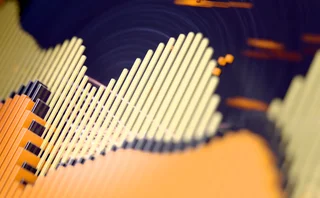
House of the year, South Korea: Korea Development Bank
Asia Risk Awards 2017

As its name suggests, when the Korea Development Bank was founded in 1954 it had a mandate to help develop the local financial system. It was a role the lender played to great success as it helped spark the period of rapid industrialisation in Korea that became known as the ‘miracle on the Han River’. And in the last 12 months KDB has continued its mission by leading innovation in Korea’s derivatives markets.
This year’s major innovation took place in the callable bond market. Across the globe expectations of a US rate rise have had an impact on the long end of the curve, and the Korean won interest rate swap market was no exception to this trend. Rising rates mean issuers have no incentive to call, and investors have less cash on hand to reinvest in new issues – and the result was a collapse in the Korean won callable bond market.
“It’s part of a worldwide trend,” says Kim Eun-hwan, part of KDB’s rate options trading team. “US dollar, euro and Korean won IRS [interest rate swap] markets are all correlated and they are shifting toward a rate hike: if the USD IRS goes up then the Korean won equivalent has to eventually follow. This trend is particularly true at the longer end of the curve between 15 to 20 years.”
This means that all the bonds issued last year and the year before will not be called, says Kim: “As a result the Korean rates market has shrunk more than tenfold. The Korean won callable bond market was really big last year and the year before, but in 2017 it all but disappeared. To give an example, the previous year KDB issued over $5 billion equivalent of Korean won callable bonds, but this year it’s less than one billion.”
Faced with the collapse of the Korean won callable bond market, KDB decided to shift policy and in July it issued $128 million in US dollar-denominated callable bonds, the first time it had created such a structure in a non-Korean currency. Given KDB’s size – figures from Korea’s Financial Services Commission show that it has 8% of the domestic derivatives market, the largest single share of any dealer – this move is likely to have a major impact on dollar fund-raising in Korea.
“KDB is one of the biggest issuers in Korea so the expectation is that our decision will have a big impact on the primary market and the Korean US dollar IRS market will become a lot more active as a result,” says Kim. “Most of the local banks are already shifting to USD funding now in terms of structured notes.”
Given the importance that Taiwan’s Formosa bond market has in providing liquidity to the US dollar options market, for Asia’s fourth largest economy to create a large pool of US dollar callable bonds could have a significance way beyond Korea’s borders.
Another impact of the collapse in the Korean won zero callable bond market was a need to innovate on the product structuring side, so in April this year KDB issued its first quanto product: a callable quanto CMS spread swap with a notional value of 100 billion Korean won ($88 million). Again Kim says this is just the first of many expected issues the bank is planning before the end of this year and the start of 2018.
“In Korea the zero callables are not working any more so we have had to use spread products, but since the shape of the Korean won IRS curve is not that attractive we knew we had to figure out which different index or currency we could combine with a Korean notional.
This was very attractive to investors who want to invest using Korean won but at the same time bet on different types of curves or currencies.”
From a risk management perspective Kim says these structures are hedged out via the Korean derivatives market.
In the last year KDB has actively looked to market derivatives to players in overseas project finance deals – a major area for Korea given the strength of the country’s engineering sector. The focus on this area has seen the volume of IRS hedging deals relating to project finance increase from $400 million notional in 2016 to more than $900 million at the end of July this year.
KDB has also played a role in expanding the Korean won/renminbi market. It has been a market-maker ever since direct trading between the two currencies started in December 2014 and at the end of 2016 occupied a market share of 9.4%.
Only users who have a paid subscription or are part of a corporate subscription are able to print or copy content.
To access these options, along with all other subscription benefits, please contact info@risk.net or view our subscription options here: http://subscriptions.risk.net/subscribe
You are currently unable to print this content. Please contact info@risk.net to find out more.
You are currently unable to copy this content. Please contact info@risk.net to find out more.
Copyright Infopro Digital Limited. All rights reserved.
As outlined in our terms and conditions, https://www.infopro-digital.com/terms-and-conditions/subscriptions/ (point 2.4), printing is limited to a single copy.
If you would like to purchase additional rights please email info@risk.net
Copyright Infopro Digital Limited. All rights reserved.
You may share this content using our article tools. As outlined in our terms and conditions, https://www.infopro-digital.com/terms-and-conditions/subscriptions/ (clause 2.4), an Authorised User may only make one copy of the materials for their own personal use. You must also comply with the restrictions in clause 2.5.
If you would like to purchase additional rights please email info@risk.net
More on Awards
Market liquidity risk product of the year: Bloomberg
Bringing clarity and defensibility to liquidity risk in a fragmented fixed income market
FRTB (SA) product of the year: Bloomberg
A globally consistent and reliable regulatory standardised approach for FRTB
Best use of cloud: ActiveViam
Redefining high-performance risk analytics in the cloud
Best use of machine learning/AI: ActiveViam
Bringing machine intelligence to real-time risk analytics
Collateral management and optimisation product of the year: CloudMargin
Delivering the modern blueprint for enterprise collateral resilience
Flow market-maker of the year: Citadel Securities
Risk Awards 2026: No financing; no long-dated swaps? “No distractions,” says Esposito
Pricing and analytics: fixed income – Quantifi
Quantifi delivers high-performance, transparent and adaptable pricing and risk analytics for fixed income and credit markets
Derivatives house of the year: Citi
Risk Awards 2026: Rev up, RWAs down, as US bank gets back on track (with added XiNG and XiP)







